
- Quarterly magazine with 60,000 copies published: A vegan magazine for Japanese people has been published four times a year since its establishment, with more than 1,000 distribution points.
- “Let’s Eat Gohan” Project: Bringing back “Gohan,” the main staple food of cooked grains, to the dining table and promoting a healthy and environmentally harmonious lifestyle.
- Providing Eating Opportunities: Creating various opportunities to experience Japanese-style vegan food, including tasting events, chef dispatches, catering services, and cooking shows.
- Passing Down Sustainable Cultivation Techniques: Collaborating with cultivation fields across the country, researching and promoting cultivation techniques that integrate with the environment.
- Supporting Producers: Activities to support producers of traditional Japanese ingredients and grain cultivators, including producer visit tours and expanding consumer recognition of traditional ingredients.
- Training and Dispatching Chefs: Training and dispatching chefs who specialize in Japanese-style vegan cuisine as an energy art.
- Support for Hotels and Restaurants: Providing tailored support for venues requiring vegan options, including menu proposals, recipe provision, and wholesale of frozen foods.
- Training and Dispatching Cooking Instructors: Partnering with “Tubu Tubu Cooking School” to train and dispatch instructors specializing in Japanese-style vegan cuisine.
- Promoting Japanese-style Veganism: Proposing and spreading practical methods for implementing Japanese-style veganism to meet the demands of various sectors.
- Hosting Cooking Classes for English Speakers: Holding cooking classes to introduce Japanese-style vegan food, centered around the Vegan JAS certified “Tubu Tubu Cooking School / Waseda Kitchen Studio.”
- Supporting Vegan JAS Certification Acquisition: Supporting the acquisition of Vegan JAS (Japanese Agricultural Standards) certification to provide consumers with accurate information.
What is Japan’s Vegan Tubu Tubu?
“Tubu-Tubu” is a nickname for traditional grains. Traditional grains are delicious and full of the power of mother earth. Traditional grains have all the nutrition that our bodies want in a condensed miraculous balance.
Tubu-Tubu also represents a new style of vegetarian cuisine based on Yumiko Otani’s unique theories and recipes, which utilize traditional grains and seasonal vegetables. These grains offer a unique taste and a delightfully chewy texture.
It also represents a suggestion for a way of living that helps you be consistent with the mechanisms and laws of the natural world.
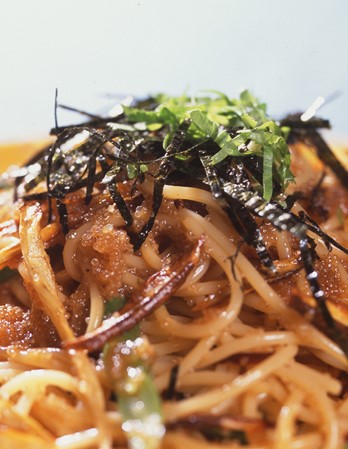
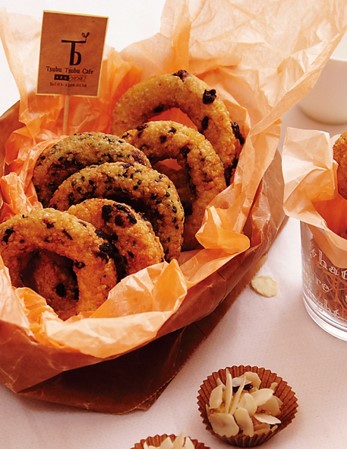
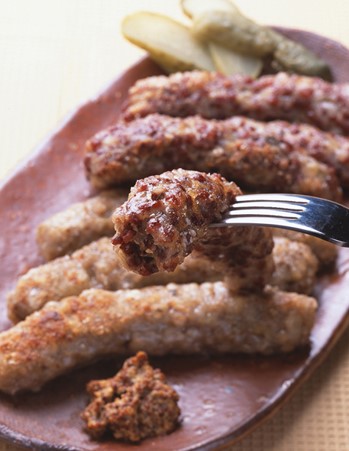
Stylishly Revives the Wisdom and Skills of Original Traditional Japanese Food
Tubu-Tubu Future Food is the creation of an ultimate gourmet diet, which accelerate people’s lives into the incoming energies of the twenty first century.
Tubu-Tubu Future Food is the translation of the wisdom of the traditional Japanese diet using contemporary tastes. Tubu-Tubu Future Food represents and creates harmony through the energy vreated by eating traditional grains, vegetables and seaweed. It is the art of diet that brings vitality to people’s minds, bodies and the earth. It also includes simple and stylish gourmet vegetarian cuisine, which is delicious to your tongue, body, and mind.
Tubu-Tubu’s creator is Food Designer, Yumiko (Yumiko Otani). Since 1982 she has developed more than 3000 recipes through the process of studying and practicing for thirty years. Throughout this time she has been continually creating new recipes. In 1995 she published “Mirai-shoku (Future Food. Skills for Surviving in the Era of Environmental Pollution)” and she started the “Future Food Seminars.”
*Tubu-Tubu= the nickname for traditional grains.
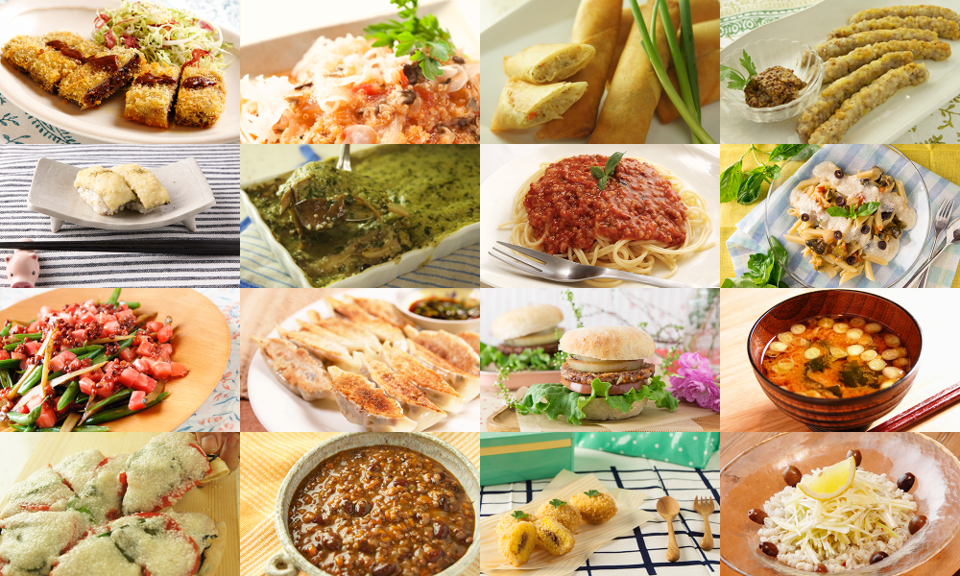
Tubu-Tubu Cooking
Tubu-Tubu cooking is our major strategy for saving the health and well-being of modern-day children with alluring Tubu-Tubu Future Food. Surrounded by an environment full of temptation, today’s children grow up thinking meals with lots of dishes besides rice and à‐la‐carte items are like snacks or treats. Because of this influence as well as the influence of fast foods, they may not be satisfied in their hearts and minds with a meal consisting of traditional grains or rice, one bowl of soup and one side dish.
Tubu-Tubu Food Designer Yumiko makes use of traditional grains as a new genre of cooking ingredients, which have a rich flavor and umami. She has created thousands of recipes of children’s favorite popular menu such as hamburger steak, pizza, gratin, a Sichuan style bean-curd, sausage without meat, eggs, or dairy product, which do not agree with people who live in the Japanese climate.
Tubu-Tubu is a new gourmet cuisine and the first of its kind in the world. It is based on cooked grains and is a highly nutritious and attractive style of cuisine that looks delicious and tastes great.
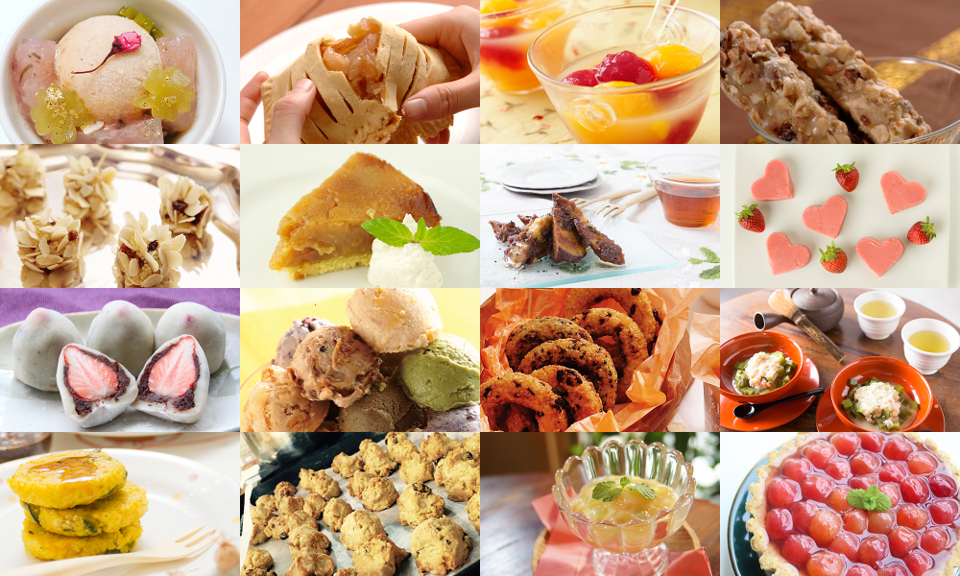
The Five Guidelines
A dietary lifestyle that pleases your heart and body. Enjoy delicious food and give new life to the cells in your body.
A dietary lifestyle that enhances your vitality. Choose to promote health so that you can break out of the harmful effects of environmental pollutions and live your life making the best of your vitality.
A self-sufficient dietary lifestyle utilizing locally grown products. The No.1 key for living free and without anxiety starts with a self-sufficient diet.
A peaceful dietary lifestyle that does not exploit people through plantation agriculture or destroy our global environment. We do not need delicious food if having it causes us to sacrifice nature or negatively impact someone else’s life. We can eat delicious foods in harmony with nature’s laws.
The art of a diet created by cooking food that is full of vital energy based on the rule of life. Your heart will be excited and your body full of life by following each day’s table of simple yet varied foods, all filled with seasonal life force.
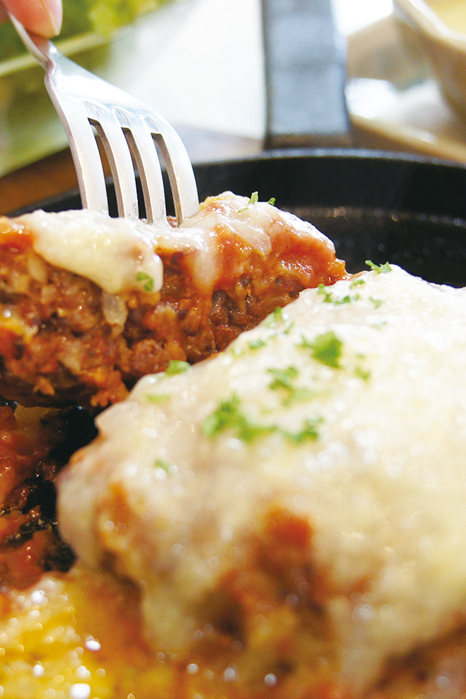
The Balance Sheet of Food and Life Force
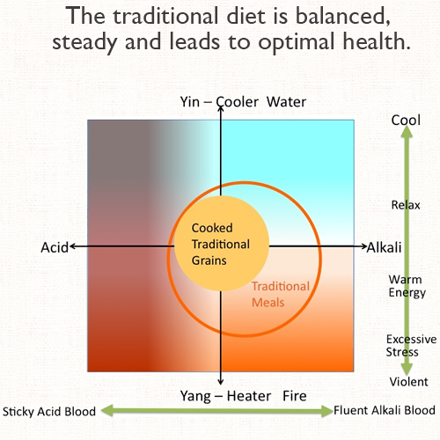
Tubu-Tubu Future Food offers “The Balance Sheet of Food and Life” to help easily identify the foods that fulfill the physiological needs of your body.
This chart shows the two natures of the foods that influence health. The vertical axis is the scale shows whether it warms or cools the body and the horizontal axis is the scale indicates whether it acidizes or alkalizes blood.
If you find where the food is located in this chart, you know how to balance your daily meals on your own.
When the world’s traditional meals were evaluated using this balance sheet, it was found that people used to eat in a healthy manner that fits in the beautiful circle. They were eating a diet that makes warm alkali blood.
Source: Yumiko Otani, Creating a New Vegan Diet Culture through the Restoration of Washoku (Japanese Cuisine): a Proposal for “The Balance Sheet of Food and Life” Based on Yin-Yang Theory Vegetarian Research Vol. 16, 1-12 (2015)
History
1982 Yumiko encountered traditional grains
The activities of Tubu-Tubu started when Tubu-Tubu Food Designer Yumiko Otani encountered “zakkoku” (Japanese traditional grains) and started to practice and search for “Tubu-Tubu Future Food,” the diet, which suits the structure of life.
1983 we started to make action.
In 1983 we opened a weekend only restaurant and ingredient shop and started cooking seminars.
1990 we started to study and practice the life connected with earth and experimented with growing traditional grains in the mountainous area of Yamagata prefecture.
1995 we started to build “Atelier of Life.” There we work on studying the techniques of growing and manufacturing traditional grains as well as passing down the seeds. we also started to appeal Life Seed Campaign. At the same time, we published “Mirai-shoku (Future Food. Skills of Energy Cooking for Surviving in the Era of Environmental Pollution.” And in 1996 started Tubu-Tubu Future Food Seminars.
2015 the countrywide network of TubuTubu cooking schools started
Today, there are 120 TubuTubu cooking schools throughout Japan. We also started seminars to teach how to grow traditional grains along with how to cook those grains.
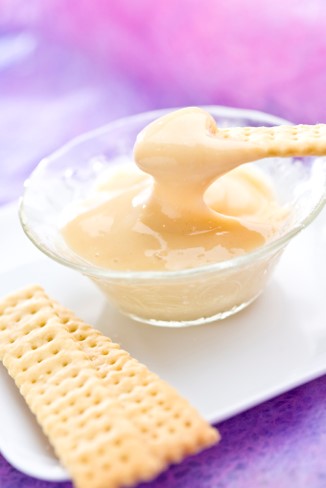
The study and practice of ecological and healthy diet
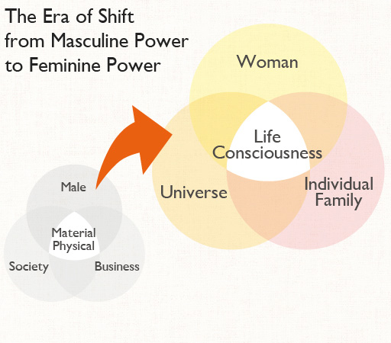
We are living in the era of a big shift from the value system of attaching excessive importance to a material civilization to the sense of value of cherishing life. The world is about to transform from men’s theory of living to the women’s theory of living.
The base for our activities is study, practice, and publicizing the information of the art of the ecological diet, Tubu-Tubu Future Food. Tubu-Tubu Future Food is a diet in which you can enjoy cooking Japanese traditional food ingredients, zakkoku (traditional grains). These grains heighten the vitality of the body and the earth and awaken femininity following the rule of life, while you enjoy eating delicious food. We are teaching a new sense of value which suits the structure of life backed by practical lifestyle skills suggesting a 100 % plant-based, non-sugar, delicious food and sweets made of traditional grains and vegetables as the core.
Managing the TubuTubu future food seminar
Tubu-Tubu offers varieties of opportunities to learn about food, life and healthy diet.
In the Future Food Seminar – students will have the chance to cultivate their sensibility for telling real food from other types, learn and recall the rule of life, and gain the basics of delicious cooking that pleases your cells. They will master the techniques to change their table beginning today with simple delicious Tubu-Tubu cooking that they can put into use right away.
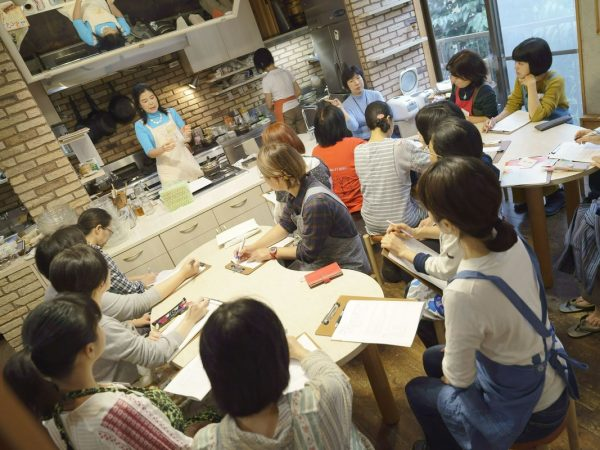
Nationwide network of TubuTubu cooking schools
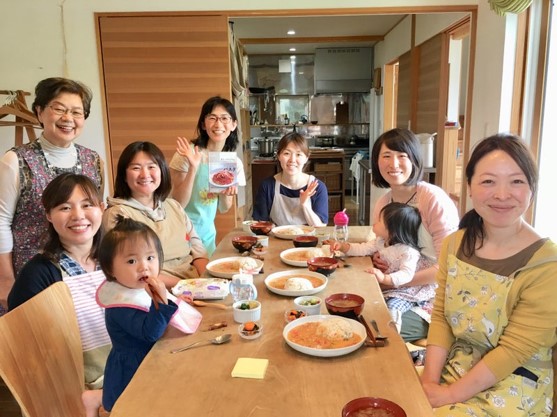
There are more than 100 TubuTubu cooking instructors throughout Japan. The cooking lessons are usually held at their own houses.
This nationwide network of cooking schools offers people opportunities to learn how to cook traditional grains in healthy ways.
It also contributes women’s empowerment by helping those instructors, most of them are women, to run small business at home.
Life Seed Campaign
Tubu-Tubu has been running a “Life Seed Campaign” since 1995 calling out to people “Let’s pass down the Life Seeds, the seeds of traditional grains!” We have been sharing the seeds and enlightening people about how to cultivate them.
We emphasize the development of producers and we also have been continuing an all-quantity buyback campaign of purchasing traditional grains of non-agrochemical culturing. We connect the growers and buyers of traditional grains with trust through the traditional grain periodical delivery service system. Reviving traditional grains to the table is a big key to realizing a diet in harmony with the environment.
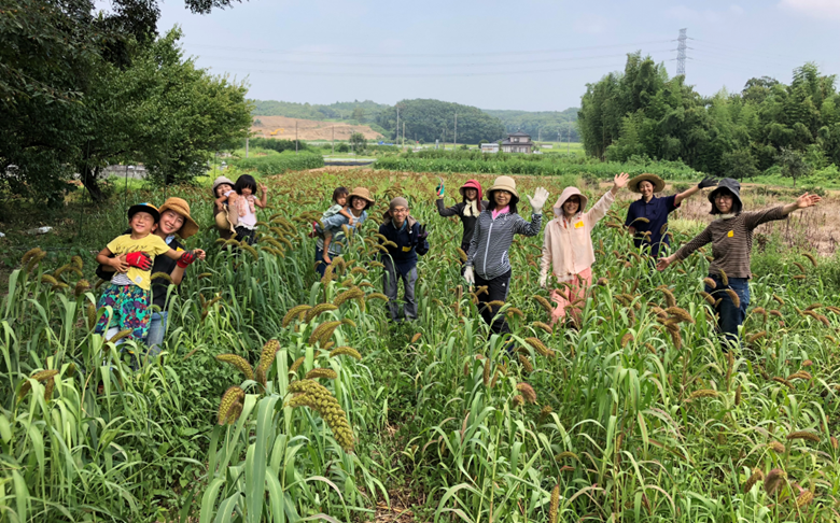
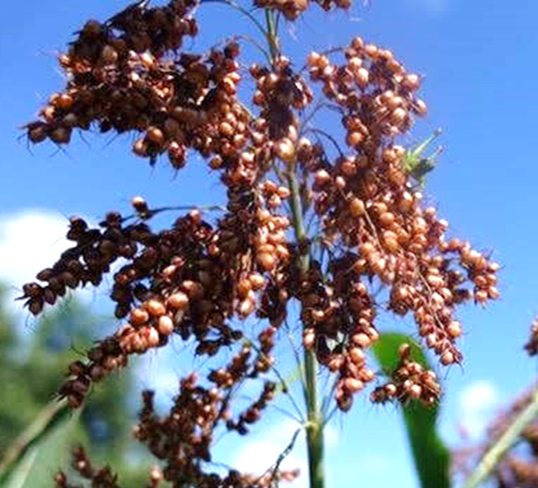
Traditional grains are nutritionally well-balanced. The native species can be cultivated in mountainous, cold or dry areas and does not deplete much of the soil fertility. In order for Japan (where the grain self supporting ratio is less than 30%) to survive it will take real power of passing down the “seeds” of delicious traditional grains. These grains do not require paddy fields or pesticides and are suited to the Japanese climate. In addition “the skills for cultivating grains” and “the techniques for diet” will also take real power and have to be learned and practiced. Today most of the vegetables and even rice became F1 hybrids, which cannot pass down their seeds and it is becoming impossible for us to grow crops without buying seeds every year. Taking this reality into consideration means the Japanese self-sufficiency rate is much lower. We can easily avoid the food crisis as well as the health crisis if each of us passes down the seeds of traditional grains together with the food culture. These grains can provide the main food supply for one year even in the mountains. And this is possible through our traditional grain periodical delivery service system.
In 2022, we started workshops to teach how to grow traditional grains along with how to cook those grains at 6 farms.
The workshops are popular among city dwellers who are interested in country living.
It also helps farmers to increase their income by teaching cultivating and processing methods of traditional grains.
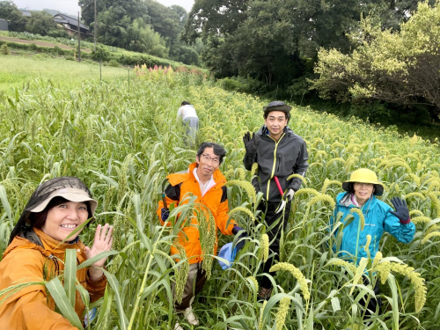
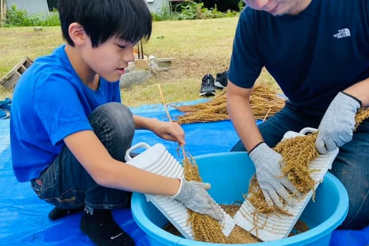
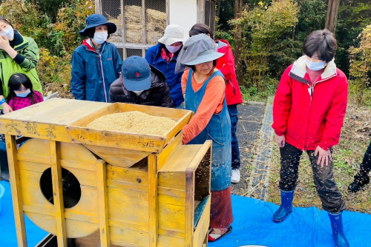
Publication & Promotions

We published “Vegetarian Yasai Cooking” (Vegetarian Vegetable Cooking)” (Ie no Hikari Kyokai) in 1991, “Mirai-shoku” (Future Food) in 1995, and more than 40 books such as “Mirai-shoku Tubu-Tubu Cooking” (Future Food Tubu-Tubu Cooking).
In 1995 we started the quarterly magazine “Heart net”, which was issued up to 27 volumes. In 2003 we developed “Heart net” and started a quarterly magazine “Tubu-Tubu” as a general magazine for the public. Beginning in 2014 we will be issuing a free paper “Quarterly Magazine Japan’s Vegan Tubu-Tubu” as a full color bulletin.
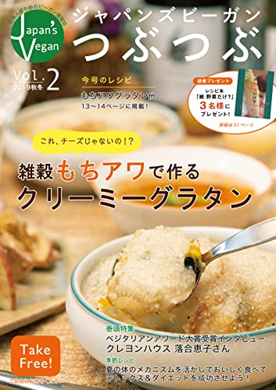
Atelier of Life & Tubu-Tubu Farm
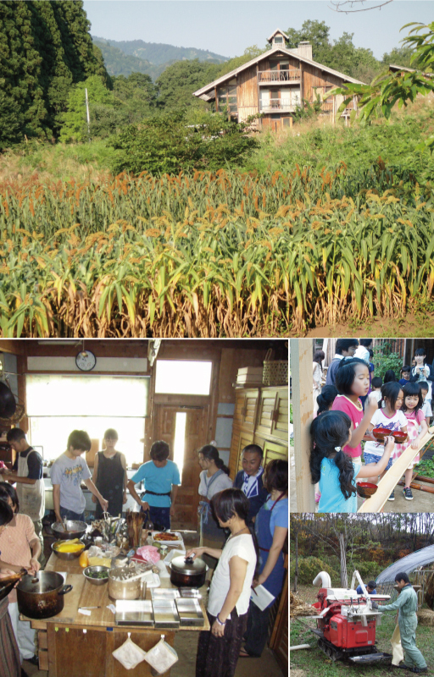
Atelier of Life is our base of living for Tubu-Tubu Food Designer Yumiko and her family. It is located in Oguni-cho in Yamagata prefecture.
In 1996 Yumiko and her family built a half owner built ecology house made with 100% domestic timber, which is three stories high and about 190 square yards. She named the house an “ecology house” and the field of 4.9 acres ”Atelier of Life” as a place for creating future diet and life.
The farm that we developed little by little spread to 30 acres on the west side and east side. We adopted non-tillage cultivation for our farm and we grow vegetables for ourselves. The large land on the east became a seven-color traditional grain farm so that we could publicly call it the Tubu-Tubu Farm.
